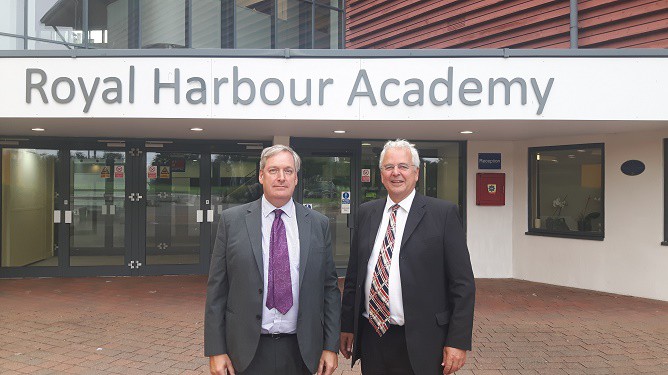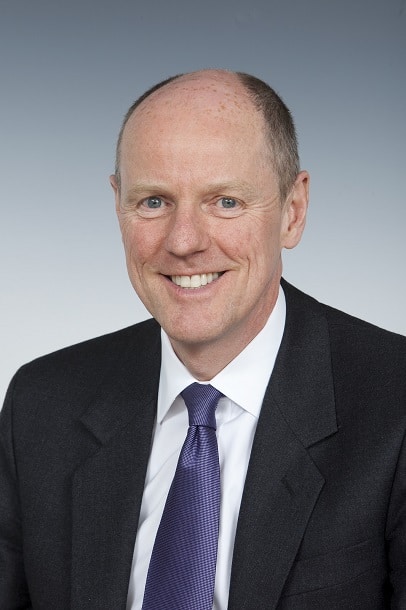
Government league tables and headlines branding schools as ‘the worst’ for progress across eight subjects at secondary level have been slammed as “stupid” and ‘damaging to students’ by a Thanet executive head teacher.
Paul Luxmoore heads the Coastal Academies Trust which covers schools including Royal Harbour Academy, Hartsdown, King Ethelbert and Dane Court Grammar.
Two CAT schools, and The Charles Dickens School in Broadstairs, have been branded as ‘under-performing’ in the latest league tables based on Progress 8 scores.
The score shows how much progress pupils have made between the end of key stage 2 and the end of key stage 4. It is based on results in up to 8 qualifications, which include English, maths, 3 English Baccalaureate qualifications including sciences, computer science, history, geography and languages, and 3 other additional approved qualifications.
A score above zero means pupils made more progress, on average, than others across England whereas a negative progress score shows less progress.
For Royal Harbour Academy in Ramsgate the score was 0.63, The Charles Dickens School was 0.66 and Hartsdown came in at 1.19. These are classed as well below average.
The tables, which do not include University Technical Colleges (UTCSs), further education colleges with 14-16 provision or studio schools, marks schools with a score of less than 0.2510 in 2016, 2017 and 2018 as ‘coasting.’

But Mr Luxmoore says the measurement, which is applied to all 3,297 state-funded mainstream schools and academies across England, fails to take into account pupils backgrounds and factors including deprivation.
He said: “There is an exact correlation between attainment on entry into secondary school -students’ ability – and Progress 8 score. There is also an exact correlation between deprivation -based on pupil premium numbers – and Progress 8 scores. Selective schools in affluent areas have higher scores than non selective schools in poor areas. Does this mean that the ‘posh’ schools are better than our schools – categorically not.
“There simply is no way of grading / comparing schools as though they were all the same. The U.K. has a huge variety of types of school and in widely varying contexts.
“Schools are already held to account by Ofsted – however, Ofsted has not yet cracked a fair method of doing this. The new Ofsted framework, due to begin in September, promises to be more intelligent – but the teaching profession is still concerned that too much will depend on the subjective judgments of inspectors. I remain optimistic, however.
‘Support’
“Whatever the method, if there really has to be one, society – of which the media is a part – has a responsibility to be measured and balanced in what conclusions are drawn. Headlines about ‘worst’ schools and ‘failing’ schools are simply stupid – and damaging to our children.
“It is society’s job to educate them – so it’s odd when ‘society’ tells them that they are attending rubbish schools! They are our children- why are we trying to undermine them?”
“The media – and the government – should focus on finding intelligent ways to improve the life chances of children in economically deprived areas, such as Thanet. The teachers in our schools have committed their careers to this – it’s about time society supported them.”
Adjusted Progress 8
Mr Luxmoore’s criticisms are backed by researchers at the University of Bristol who have produced an “adjusted” Progress 8.
This takes into account factors such as ethnicity, free school eligibility and gender, so progress is compared with others in their group rather than with an overall national average.
Under the adjusted measure, 123 (41 per cent) of the 303 schools that were judged in 2016 to be underperforming or “well below average” would move out of that category.

School Standards Minister Nick Gibb said: “Making sure that all pupils, regardless of their background, are able to fulfil their potential is one of this Government’s key priorities and these results show that more pupils across the country are doing just that.
“It’s been clear for some time that standards are rising in our schools and today’s data underlines the role academies and free schools are playing in that improvement, with progress above the national average and impressive outcomes for disadvantaged pupils.
“Also vital to rising standards is the increasing number of pupils entering the EBacc. With a record number of disadvantaged pupils achieving good grades in the EBacc, more pupils will go on to further and higher education with a wider range of options and opportunities.”
The government tables also show the proportion of pupils achieving a grade 5 or above at GCSE in both English and maths has increased, from 42.6% last year to 43.3% and 95.5% of pupils are now entering EBacc science at GCSE, up from 63.2% in 2010.

